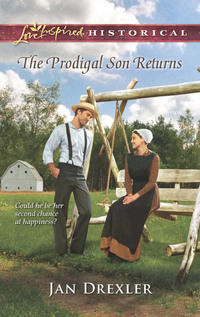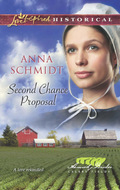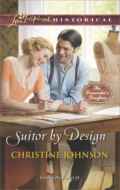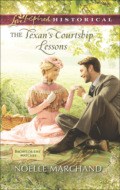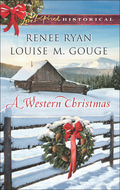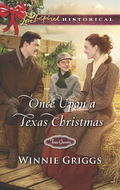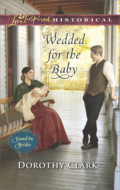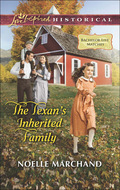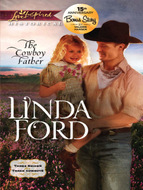Książki nie można pobrać jako pliku, ale można ją czytać w naszej aplikacji lub online na stronie.
Czytaj książkę: «The Prodigal Son Returns»
Returning To His Amish Past
From her first glimpse of his big-city suit, Ellie Miller knows Bram Lapp is trouble. The handsome Englischer says he wants to reclaim the life he left long ago. Even if his smile disarms her, all of Ellie’s energy must go to her children and their struggling farm…and to atoning for her mistakes.
A criminal’s trail has brought FBI informant Bram to Ellie’s warm and welcoming Indiana community. Now he’s posing as the kind of man he once hoped to be. Someone steadfast and upright. Someone who might be worthy of Ellie. Because no matter how much she claims she doesn’t want a second chance at love, he knows he’s found the home they were meant to share.
“Last night you told me
you never intended to stay here.”
Ellie kept her eyes on the far side of the lake, where a heron stalked in the shallows. “I know I said I’d trust you, Bram, but I don’t know what to think. You’re like two different people sometimes—sweet and tender one minute, and then harsh and almost frightening other times.”
“Ja, I know, and I’m sorry.” Bram paused, his own eyes on the motionless heron. The bird was nearly invisible in the shadow of the trees, his gray-blue coloring a shadow within a shadow. Living undercover. How did a man stop living a lie?
“I want to stay, Ellie. But I don’t know if I’ll be able to.” He took her hand in his, and she looked at him.
“Even if you stay, we can never be more than friends.” Her voice was soft, almost a whisper, her blue eyes reflecting the water.
“Aren’t we already more than friends, Ellie?”
JAN DREXLER
A recent graduate from Homeschool Mom-hood, Jan Drexler devotes her time to the voices in her head who have been clamoring for attention during the past few decades. Instead of declining Latin nouns and reviewing rhetorical devices, her days are now spent at the computer, where she gives her characters free rein.
She lives in the Black Hills of South Dakota with her husband of thirty years, their four adult children, an extremely furry Husky, and Maggie, the cat who thinks she’s a dog. If she isn’t sitting at her computer living the lives of her characters, she’s probably hiking in the Hills or the Badlands, enjoying the spectacular scenery.
The Prodigal Son Returns
Jan Drexler

MILLS & BOON
Before you start reading, why not sign up?
Thank you for downloading this Mills & Boon book. If you want to hear about exclusive discounts, special offers and competitions, sign up to our email newsletter today!
Or simply visit
Mills & Boon emails are completely free to receive and you can unsubscribe at any time via the link in any email we send you.
He shall cover thee with his feathers,
and under his wings shalt thou trust:
his truth shall be thy shield and buckler.
—Psalms 91:4
To the storytellers in my life, especially
my grandmother, Ethel Sherck Tomlonson Rupel, and my parents, John and Veva Tomlonson.
To my dear husband and children,
who never stop believing in me.
And to the ladies of Seekerville.net. Without you, I’d still be typing away, alone in my writer cave.
Soli Deo Gloria
Contents
Chapter One
Chapter Two
Chapter Three
Chapter Four
Chapter Five
Chapter Six
Chapter Seven
Chapter Eight
Chapter Nine
Chapter Ten
Chapter Eleven
Chapter Twelve
Chapter Thirteen
Chapter Fourteen
Chapter Fifteen
Chapter Sixteen
Chapter Seventeen
Chapter Eighteen
Chapter Nineteen
Chapter Twenty
Epilogue
Dear Readers
Questions for Discussion
Chapter One
LaGrange County, Indiana
May 1936
A high-pitched scream forced Bram Lapp’s feet into a run even before his mind could identify the source. He raced up the dusty farm lane between a garden and a plain white house at the top of the sloping yard, and when the next scream sounded, ending in a terrified child’s voice yelling, “Ne, ne!”, adrenaline rushed in, pushing him faster. He knew that sound all too well—a child was in danger, terrified. Grim possibilities flashed through his mind.
Rounding the corner of the barn, Bram’s slick leather soles skidded sideways in the gravel. His feet found purchase, and he focused on the little girl crouched in front of him. A chicken flapped at the end of her outstretched arm, but her eyes were on the four draft horses looming over her. He dived toward her, letting his momentum carry him beyond the horses. Grabbing the girl in his arms, he rolled them both past the
dinner-plate-size hooves and slid to a halt at the edge of the grassy backyard.
Bram shoved the child off his chest onto the grass, spitting feathers from his mouth, trying to see past the squawking red hen in his face. Where was she hurt? She screamed even louder as he wrenched the protesting chicken out of her hands and tossed it behind him.
Wide brown eyes cut from the horses to his face and then back again, her screams turning to ragged crying. She tried to pull away, but he kept her close with a firm grip on her arm. If she was hurt, or bleeding, the worst thing she could do would be to run and hide somewhere. He’d seen enough of that with kids on the Chicago streets.
He brushed at the feathers caught in her disheveled brown braids. She no longer looked like a copy of the chicken that still scolded him from a distance, but the tears running down her face clenched at his stomach. He turned her to one side and then the other. No blood that he could see. She ignored his touch; her eyes were fixed on the horses behind his shoulder.
The rattle of the harness told him the horses were moving. Her eyes widened even more as she tried to pull out of his grasp, sucking in a deep breath. Before she could let loose with another scream that might panic the horses further, Bram did the only thing he could think of to prevent it. He clapped his hand over the girl’s mouth.
“What are you doing?”
The fury in the young woman’s voice registered at the same time as the pain in his hand as the little girl sank her teeth into him. He bit back a curse and released her. With a flurry of skirts, a slim Amish woman descended on them from nowhere and snatched the girl up in her arms. Holding the child close, she fixed her blue eyes on Bram, flashing a warning as she watched him scramble to his feet.
He’d rather face the wrong end of a tommy gun than this... Wildcat seemed to be the only word for her.
A wildcat who had no business being angry with him.
His answer barked out in Deitsch before he thought about it. “I was just saving that girl from being trampled by these horses, that’s all. What did you think I was doing?”
Was that a smile that twitched at the corners of her mouth?
“Those horses?”
Bram turned to look at the draft horses and noticed for the first time they were tied to a hitching rail. The near horse flicked a lazy ear at a fly, a movement that did nothing to quell his rising irritation. He spun back to the young woman and the little girl, who stared at him with one finger in her mouth.
“Ja, those horses. No matter how docile they seem, she could be hurt playing around them like that. She was screaming so loudly I assumed she had been.”
The woman caught the edge of her lower lip between her teeth and hitched the little girl around to her hip. The self-righteous soothing of Bram’s prickled temper stopped short at her nod.
“Ja, you’re right. She shouldn’t be near the horses at all. She panics like this every time she gets near them, but you didn’t know that.” She drew a deep breath that shuddered at the end. “Denki for helping.”
That shaky breath got him. Bram straightened his jacket and dusted off his gabardine trousers to give his eyes something to focus on. Her steady gaze demanded his apology, but he wasn’t about to admit he was sorry for saving the girl, was he?
When he looked up, her gaze was still on him, expectant, her blue eyes a sharp contrast to her brown dress. Even standing on a slight rise above him, her kapp barely reached the level of his chin, but he was defenseless.
“I’m sorry. I probably scared her as much as the horses did.”
This time he was sure her mouth twitched.
“Ja, probably.”
Then she did smile, lighting up her face in a way that would make those painted girls back in Chicago green with envy. Bram drew a deep breath. Who would have thought he’d find a beauty like this among these Plain people?
“Memmi,” the little girl said, “can I go find Grossmutti?”
“Ja, for sure.” The woman set the girl on the grass and watched her run to the back of the house.
Memmi? Bram’s thoughts did an about-face. She was married, a mother, and he had let himself get distracted by a pretty face, and an Amish one at that. He was here to buy a horse, nothing more.
“Is your husband around? I heard he had a horse for sale.”
The woman paused, the smile gone in a shadow. “I think you’re looking for my father. You’ll find him in the barn.”
Bram glanced toward the barn cellar door as she nodded toward it, but by the time he had turned to her again, she was halfway to the house. “Denki,” he called after her. She didn’t look back.
* * *
Ellie Miller fought the urge to run to the safety of the Dawdi Haus with four-year-old Susan, keeping her walk steady until she joined Mam at the clothesline behind the big house.
She had forgotten. An Englischer gave her a crooked grin, and she had forgotten about Daniel. How could something so innocent make her forget her own husband?
Something about that Englischer didn’t make sense...
Ach, he had spoken Deitsch. His suit and hat were Englisch for sure, with that bright yellow necktie, but where had he learned to speak Deitsch?
And that grin! Her breath caught at the whispery ache that wrapped around her chest. Daniel had smiled at her often, but without a mischievous dimple that winked at her. What was she doing even letting her mind remember that grin? He was just another Englischer.
Ellie pulled a shirt from the basket to hang on the line.
Ja, just another Englischer who spoke Deitsch and made her rebellious heart flip when he smiled.
“Who was that man you were talking to? If it was another tramp, there’s a piece of pie in the kitchen.” Mam’s voice drifted to her from the other side of the clothesline, where she was hanging the girls’ dresses.
“He wasn’t looking for food. He wanted to talk to Dat.” Ellie glanced at the barn, glad for Dat’s ease when it came to talking to outsiders. “There was something strange about him. He was wearing Englisch clothes, but he spoke Deitsch.”
Mam’s voice was calm, as if she heard Englischers speaking their language all the time. “Maybe he has some Amish friends and learned the language from them. Did he want to buy the gelding Dat has for sale?”
“What would he want with a horse?”
“I expect an Englischer might want a horse once in a while.” Mam pulled another dress out of the basket at her feet. “When I see them tear along the roads in those automobiles, I wonder why anyone would hurry that fast just to end up in a ditch.”
“Lovina’s neighbor only did that once.”
“Once is enough, isn’t it?” Mam pulled the loaded clothesline lower to look at Ellie. “A person can be in too much of a hurry at times. When do you have time to pray, or even think?”
“For sure, I’m glad the church decided to keep them verboten. Not only are they noisy, but they smell terrible. Next thing you know, all the Englisch will be buying them.”
“Ach, not until these hard times are over.”
Ellie sighed as she pinned one of her brother’s shirts on the line. Would these hard times ever be over?
“I like automobiles.” Susan’s voice was soft, hesitant.
Ellie looked down at her young daughter. Automobiles? What would she say next?
“Why do you say that?” Ellie shook out the next shirt with a snap.
Susan leaned closer to Ellie from where she squatted next to one-year-old Danny in the grass under the clothesline, her brown eyes wide in her heart-shaped face. “Because they aren’t horses.” Her words were a whisper as she glanced toward the Belgians waiting to be hitched to the manure spreader.
Ellie pushed the clothespins down firmly. When would Susan get over this fear? Daniel’s accident had changed everything.
At this thought, Ellie paused, grasping at the line to control the sudden shaking of her hands. Her mind filled again with the horses’ grunting whinnies, the stomping hooves, the smell of fear and blood, Daniel trapped against the barn wall and then falling under those huge hooves... Ellie’s stomach churned. That day had left an impression in Susan’s mind that affected her even now, months later. It still affected all of them.
Ellie shook her head to brush away the memories and shoved the final clothespin onto the last shirt. What was done was done. She might wish things were different, but her husband was dead. That was a truth she faced every day. She refused to succumb to the stifling blanket of grief that pushed at the edge of her mind, tempting her to sink into its seductive folds.
“All done, Mam. Do you want me to help take the clothes in this afternoon?”
“Ne, don’t bother. I’ll have the girls tend to it when they get home from school.”
“Come, sweeties.” Ellie lifted Danny in her arms while Susan hopped on one foot next to her. “Time to get our dinner started.”
Ellie crossed the drive to the worn path between the barn and the vegetable garden that led to the Dawdi Haus. The house her grandparents had lived in when she was a child had sheltered her little family during the months since Daniel’s death. Susan ran ahead of her along the lane, her earlier fright forgotten.
“Plan on eating supper with us tonight,” Mam called after her. “I’m fixing a chicken casserole, and there’s plenty for all.”
“Ja, for sure,” Ellie called back, then turned her attention to Danny, who was squirming to get out of her arms. “Sit still there, young man.” She laughed at the determined expression on his face as she followed Susan.
Ellie watched the little girl skipping ahead, but her mind was full of a queer anticipation. It was as if her birthday was coming or the wild freshness of the first warm air of spring, pushing back the dark clouds of winter....
That Englischer’s grin, that was what brought this on. It did something to her, and she frowned at this thought. It didn’t matter what an Englischer did, no matter how blue his eyes were.
That grin held a secret. What was he thinking when he looked at her?
She hitched Danny up as the thought of what might have been going through his head came to her. Ach, why did an Englischer’s wicked-looking grin give her such a delicious feeling at the memory of it?
Dat and the stranger stood on the threshing floor between the open barn doors, where the fresh air and light were plentiful, but Ellie kept her eyes on the edge of the garden as she hurried to follow Susan. If she glanced their way, would she see that dimple flash as he grinned at her again?
She had to stop thinking about him. He would talk to Dat and then be gone, and she’d never see him again, for sure.
In the backyard of the Dawdi Haus, Ellie paused to pass her hand along a pair of her oldest son’s trousers. Dry already. She’d bring in the laundry before fixing the children’s dinner. After she put the little ones down for their naps, she could iron in the quiet time before Johnny, her scholar, came home. She smiled, anticipating the quiet hour or so in the shaded house, alone with her thoughts.
Opening the screen door for Susan, Ellie chanced a look at the big white barn behind her. Ja, he was still there, talking with Dat. She followed Susan into the house, letting the door close behind them with a ringing slam.
* * *
Bram glanced at the man next to him. John Stoltzfus was stern, yet quiet and confident. More like the grossdatti he barely remembered than the father he had left behind so many years ago. From the clean, ordered barn to the little girl skipping along the lane at the bottom of the ramp, the Stoltzfus farm was a world away from the home he had remembered growing up.
And a world away from Chicago. In the three days since he’d stepped out of his life in the city and walked back into his past, those twelve years had slipped away until even the stench of the West Side was a half-
remembered dream. Was he losing his edge already? It was too easy to fall into this simple, Plain life.
Bram’s thoughts followed the young woman in the brown dress as she walked past the barn toward the Dawdi Haus. When she ran her hand along the boy’s trousers on the clothesline, a door opened into a long-forgotten place in his mind. That simple, feminine action spoke of the home he had tried to forget. How many times had he seen his Mam do that same thing?
The breeze brought the scent of freshly plowed fields into the barn as the young woman opened the door of the Dawdi Haus and then glanced his way, meeting his eyes before disappearing with an echoing slap of the wooden screen door. Why did she live there? And why were there no men’s clothes hanging with the laundry?
Movement next to him drew his attention.
“So you’re coming home?”
John’s unspoken finally lingered at the end of the question, hinting at the speculation Bram knew he would be facing as word of his return spread. He could imagine the stir his disappearance had caused, even here in Eden Township.
“Ja, I’m coming home.” How much information would get him the entrance into this community that he needed without divulging too much? “When I left, I was young and I thought I could always come back, but time got away from me....” Bram sighed and stared across the road at the rich brown corduroy of soil. A flock of blackbirds scattered through the field, picking at exposed seed.
What would his life be like if he had never left? What did he have now, other than lost time and poor choices?
“You left before you joined the church?”
“Ja, I was in my Rumspringa.” A Rumspringa that had never ended. Once he’d left home, Bram had never intended to return.
“What were you looking for out there?”
He glanced back at the older man’s expectant face. From what his brother-in-law, Matthew, had said, John was one of the leaders in this district. Bram needed his support if he would ever be accepted into the community, but it wouldn’t be easy. The Amish kept tight fences.
“I’m not sure now. Maybe excitement, freedom. I never found it, though.” He cast his glance to the side, away from John, as if he was repentant and ashamed. No, he didn’t need to do much acting to slip into this role. “I’m ready to come home.”
Bram steadied his expression and looked back at the older man’s face. He had said it the right way—John Stoltzfus believed him—but Bram didn’t know if he’d ever be ready to come home. He wouldn’t be here now if it wasn’t for Killer Kavanaugh and the contract the gangster had put out on him.
“The Ordnung can be hard to live up to.” Bram heard a warning note in John’s voice.
“Not as hard as the way I’ve been living.” The memory of Chicago’s dirty streets clashed against the reality of the fresh spring air outside the big barn door. Yeah, life in Chicago had been dangerous, exciting, risky—and always hard. At least with the Ordnung, a man knew where he stood.
“What does your brother think?”
Samuel. Their father’s living legacy. His brief stop at the family farm near Shipshewana earlier in the week had let him know what Samuel thought. Where Dat had been cruel, Samuel was petty, but that had been the only difference. From the belligerent set of his chin to his bleary eyes, Samuel was Dat all over again.
“Ja, well, Samuel doesn’t believe I’m back to stay.”
“You can understand that. You left a long time ago, and much has happened since then.”
Twelve years. Yes, a lot had happened, both here and in Chicago. Bram’s stomach clenched. He had to make this work....
He forced his voice to remain quiet, in control. “I hope that with time he’ll see I mean what I say.” But he wouldn’t give Samuel the chance. He could go the rest of his life without seeing his brother again.
“With time,” John agreed with a nod. He turned to look back into the shaded interior of the barn, where the horse was tied to a post, the subject closed for now. Bram moved his shoulders against the strain that had crept in without his knowing.
“Partner here should be a good horse for you. He’s a little spirited, but he drives well. My daughter Ellie usually chooses him if she’s going out, and she won’t put up with a horse that won’t mind her. She won’t take any chances with the children in the buggy.”
“Is she the daughter who just went into the Dawdi Haus?”
“Ja. She and the children have been living there since her husband died.”
So the young woman was a widow? Bram tucked that information away as John lifted each of the gelding’s hooves for his inspection. The horse twitched his ears but stood quietly during the process. Bram held out a carrot nub John gave him, and the horse took it, eyeing the stranger as he munched the treat.
“I haven’t dealt with horses much the last few years, but he seems to take to me.”
“He’s a good horse.”
“Your price sounds fair.” Bram pulled his money clip out of his pocket and peeled off a few bills. “Is it all right if I pick him up on Tuesday? I ordered a buggy from Levi Miller’s, and it should be ready to pick up that afternoon.”
“Ja, for sure.” John took the money and shook Bram’s hand. “I’ll be looking for you on Tuesday.”
* * *
Cool air washed over Ellie as she and the children went into the shaded kitchen. She shifted Danny on her hip, ready to put the heavy load down.
“Can we play with Noah’s Ark?” Susan’s favorite toy was a new discovery for Danny.
“Ja, that will be good. Why don’t you set it up in the front room while I change Danny’s diaper?”
Ellie took the baby into the bedroom Danny and Susan shared. She used the second bedroom, while Johnny slept on the sofa in the front room. The little house had seemed like such a refuge when they had moved in, but they were quickly outgrowing it. Dat had offered to add on another bedroom, but Ellie was reluctant to take that step. It seemed so permanent.
She would be moving back to Daniel’s farm as soon as she was able to support herself and the children. The farm belonged to her now. It was the children’s legacy from their father and his dreams for their future. When she was ready to make the move, then she would tell Mam and Dat. No use crossing that bridge yet.
Once clean and dry, Danny was anxious to get into the front room to play with Susan. Ellie put him down on the floor while she took care of the diaper and watched him make his way into the next room, doing his own one-foot-one-knee scooting crawl.
“Ne, Danny!” Hearing Susan’s cry, Ellie stepped through the doorway to see Danny plowing his way through his sister’s carefully set up animal pairs, making a beeline for the cows.
“Just set them up again, Susan. You know he’s not doing it on purpose.”
Ellie picked the marauder up and set him down on his bottom next to the pair of black-and-white cows. He took one in each hand and stuck a cow head into his mouth. He looked up at Ellie with contented adoration on his face, drool dripping down his chin. She couldn’t help caressing his soft hair.
“I think we’ll have to ask Dawdi Hezekiah to make another set of cows.”
“Ne, Memmi, Danny can play with those. I still have the brown ones.”
Ellie gave Susan a smile. The little girl forgave quickly when it came to Danny. Between the two of them, he was nearly spoiled.
Standing up again sent a twinge through Ellie’s back, reminding her of how much work she had done already that morning. She leaned back a bit to ease the strain and caught a glimpse of the strawberry field through the window. She stepped closer to the glass, drinking in the sight of the rows of green leaves nestled in the soil.
Rows of green promising the fulfillment of Daniel’s dreams for their children—a home, a future. Giving them what he wanted was the least she could do. She owed him that much.
Ellie rubbed her arms, brushing away the sudden chill that brought goose bumps, and stepped away from the window. Susan chattered to Danny as she walked the wooden animals up the ramp and through the door of the ark. How would she know when she had given the children enough to make up for what she had done?
Brushing the thought aside, she crossed the room to the kitchen. “Susan, I’m going to bring the clothes in. Call me if you or Danny need anything, ja?”
“Ja, Memmi. I will.”
Picking up the empty basket from the back porch, Ellie started with Johnny’s shirts, dropping the clothespins into the basket as she folded each shirt. When she reached for Susan’s blue dress, the stranger stepped up next to her and took the dress from the line, handing it to her as he dropped the pins with the others.
“I thought I’d check on your little girl before I left.”
Ellie froze with the dress in her hands. What was he doing? Asking for Dat was one thing, but to speak to her in this way?
“She...she’s fine. She’s just fine.” Ellie concentrated on folding the dress and took Johnny’s trousers from the Englischer as he dropped more clothespins into the basket. The sleeve of his jacket was gray, with threads of yellow that matched his necktie and the handkerchief in his breast pocket. No one dressed that fancy, not even the Englischers in town. Who was he?
“I found your Dat in the barn, just like you said. The horse will be perfect for me. John said you’ve driven him quite a bit.”
“Ja, I take him when I need to run errands or go visiting.” Why didn’t he just go? What if Mam saw an Englischer talking with her?
“My name is Bram. Bram Lapp. And you’re Ellie, right?”
Ellie glanced at his face. Ja, that grin was there, making a dimple show on his cheek. Ach, what a mess! How could she get him to leave and still be polite?
“Ja, that’s right.” Her cheeks were flaming hot under his gaze.
“I’m staying with Matthew and Annie Beachey until I find a farm to buy. Annie’s my sister.”
Ellie stared at him. “Your sister? But you’re...” How could he be Annie’s brother? She wasn’t Englisch.
His grin widened. “Has anyone ever told you how beautiful your eyes are?” He turned away and stepped to the next line to start on the many diapers.
Ellie couldn’t pull her eyes away from him, her cheeks burning. How forward could one man be? He ignored her as he pulled the pins off the line and bunched the diapers in his hand. When the line was empty, he dropped the diapers into the basket on top of the clothes.
“I’m glad your little girl is all right.” He picked up the basket and started toward the house. He wouldn’t just walk inside, would he?
“I can take that.” Ellie hurried after him and reached for the basket. He let her grasp the sides as he paused at the porch steps, but he held on until she looked up at him.
“Will I see you again? I’ll be around, you know.” His dimple deepened, and she pulled the basket out of his hands. Didn’t he understand how rude and forward he was being?
“Denki for carrying the basket, but ne, I don’t think you’ll be seeing me again.”
She left him and went into the house, closing the solid wood door behind her, shutting him out. Leaning her back against the door, Ellie listened. Would he be so bold as to follow her onto the porch?
Setting the basket on the floor, she stepped to the sink and looked out the window. There he was, walking past the barn toward the road, his hat tilted on the back of his head and his hands in his pockets.
Annie Beachey’s brother? Ellie squinted her eyes. Ja, perhaps if he wore Plain clothes and a straw hat instead of the gray felt one with the yellow band...
Ne. She shook her head and turned to pull a loaf out of the bread box. He was just too Englisch. For sure, the clothes made him Englisch on the outside, but no Amishman would be so bold with a woman! He was Englisch through and through.
Ellie looked up from her task of slicing the bread. She could still see him on the road. He had taken off his jacket and slung it over one shoulder, and as she watched, he did a little skip and kicked at a rock on the road, sending it bouncing along in front of him. He ran up to it and kicked it again, sending it into the ditch. Laughter bubbled up in her throat, and she leaned toward the window to keep him in view as he hunted for the rock in the tall grass at the side of the road. And then he was gone.
Straightening the bread on the cutting board, she cut two more slices for Susan and Danny before she realized she was still smiling. Ach, what was it about this Englischer? What if he had seen her laughing at him?
She shook her head, putting a frown on her face. Ne, that wouldn’t do at all. Englischers and Amish just didn’t mix, especially strange, fancy men. No good Amish woman would let him near her and her family.
